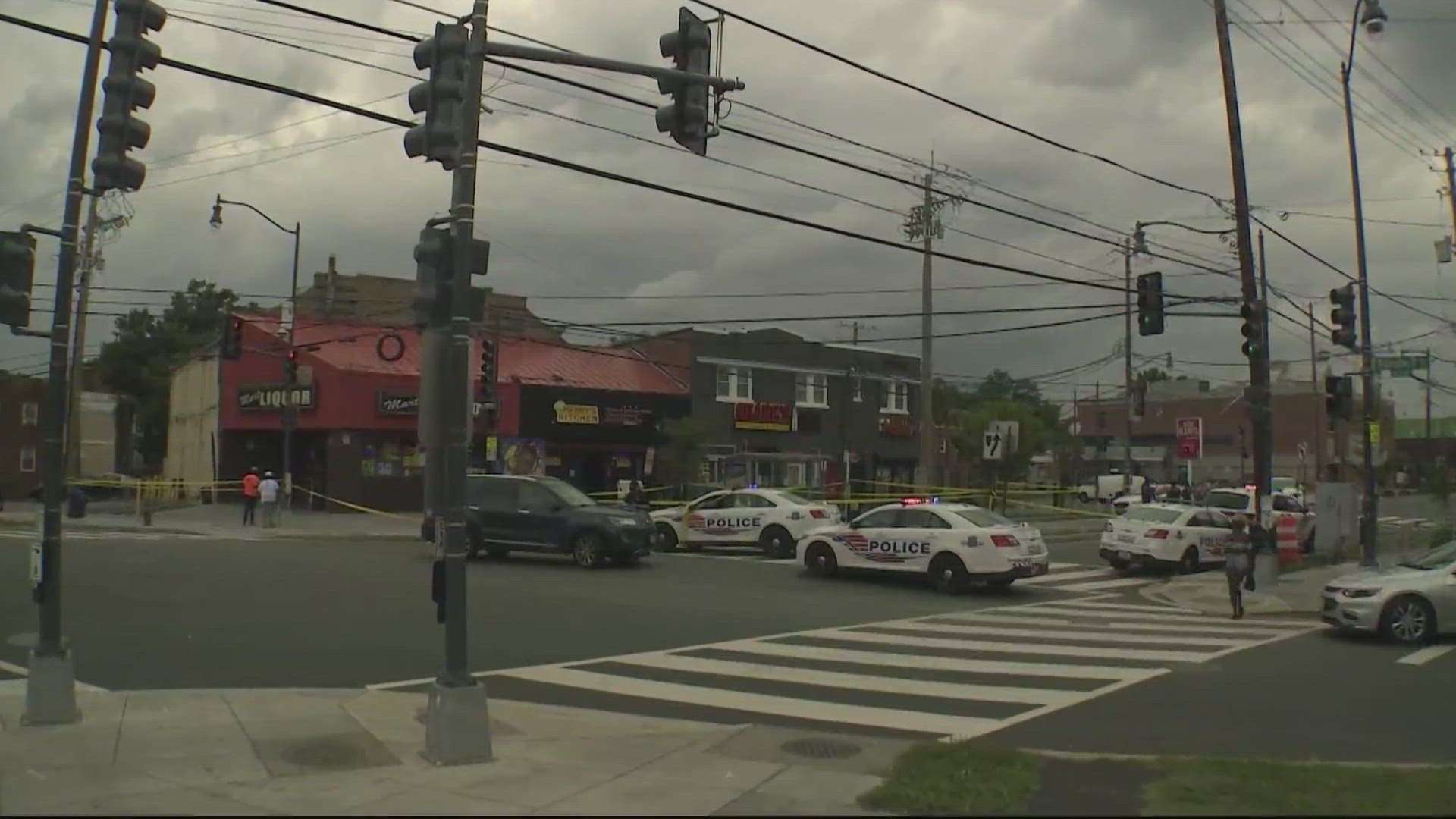WASHINGTON D.C., DC — As Washington, D.C.’s murder rate continues to skyrocket, some believe a controversial new proposal from Councilmember Brooke Pinto will sacrifice constitutional rights in the hope of safer streets.
But Pinto says her new “Secure DC” plan includes about 100 different ideas and interventions to try and curb the gun violence epidemic in the District. Her proposal to expand police rights to search some D.C. residents without a warrant or probable cause is just one part of a larger approach.
Pinto says about two-thirds of individuals who were arrested once for a gun-related charge will recommit another similar offense.
“And so this is a population that we have to take really seriously in thinking about our tools," Pinto said.
Murders in the District are up 37% over last year and on pace for the District’s highest number in two decades. Violent crime in the city is up 38%.
“What I think about every day are the people who've lost their lives, the families who've lost a loved one, and the communities that are so rampant by gun violence right now," said Pinto, who is Chair of DC Council’s Committee on the Judiciary and Public Safety.
Pinto’s plan includes an amendment to the DC code giving MPD the right to stop and search someone without a search warrant or probable cause if that person is outside of their home or business and:
That person is on probation, parole or supervised release for a gun crime; or That person is on supervised release awaiting trial for a violent crime.
Editors Note: In her interview Councilmember Pinto told WUSA9 two-thirds of individuals who were arrested for a gun-related charge will recommit another offense with a gun. Councilmember Pinto's office subsequently reached out to amend that statement, saying about two-thirds of individuals who were arrested once for a gun-related charge will recommit another similar offense.
But Damon King, Policy Director for the ACLU-DC questioned how MPD officers would know who to search without targeting innocent people.
“There’s no way that they’re going to know whether any of those people are on supervised release,” King said. “The way that this is drafted, it really kind of incentivizes police interacting with folks without reasonable suspicion of a crime, to sort of fish and see if they can trigger that warrantless search provision.”
Statistically, King said the majority of those impacted by the warrantless search provision would be people of color.
“That puts people who are innocent, people who may not have any sort of history with the criminal justice system, at risk,” King said,
Pinto does not believe warrantless searches in certain instances would lead police to improperly target people of color.
“We certainly want to be very careful that nothing that we're doing here would authorize harassment and that is spelled out in the law itself,” Pinto said. “But we also have to make sure that we have sufficient safeguards. Unfortunately, very often, it's the same people who are recommitting crimes that are known to law enforcement.”
Warrantless searches, also known as “jumpouts” or “stop and frisk,” is an issue WUSA9 has investigated since 2018.
In 2019, a WUSA9 data analysis of MPD data revealed D.C. police performed more than 1,400 stop and frisks during a four-week period during the summer and 93% of those stops were on black citizens.
That same year former MPD Officer Sean Lojocano was fired for improper and invasive searches like this one because it violated MPD Training and General Orders.
A 2020 ACLU-DC data analysis found that Black people, who make up 46.5% of the D.C. population, composed 72% of the people stopped. The ACLU-DC also found that 88.6% of the youth under 18 who were stopped were Black.
“The overarching concern here is this is going to drive a wedge between the Black communities that are over-policed, that are subjected to these unconstitutional searches, and the police department," said DC civil attorney Lynne Bernabei. “It goes against all the police reforms over the last 10 years or so.”
Bernabei is representing MPD Police Officer Charlotte Djossou, who is suing the department for retaliation for allegedly reporting “jumpouts” by other officers to her superiors.
She partners with DC criminal attorney Joseph Caleb pushing for MPD reforms for officer interactions with Black residents.
“They don’t feel safe in their interactions with the Metropolitan Police Department,” Caleb said. “They feel that at any moment they can be stopped, they can be frisked, they can be harassed, they can be searched, or even arrested, for no apparent reason.
“I think we do have to do something,” Caleb said. “I just don’t think that this is the answer."
Bernabei said warrantless searches would only further fracture and already damaged relationship between police and some parts of the community.
“They’re not going to cooperate with the police if they know they are being treated in a discriminatory manner which is contrary to everything police say they need from the community,” Bernabei said.
MPD spokesperson Paris Lewbel would not take a position when asked if DC Police support the warrantless search proposal. In a statement, Lewbel wrote, "We look forward to working with Councilmember Pinto on our shared goal of a safe DC."
The day Pinto introduced her plan Anna Blackburne-Rigsby, Chief Judge of the District of Columbia Court of Appeals and Anita Josey-Herring, Chief Judge of the Superior Court of the District of Columbia wrote a joint letter to Pinto saying her proposal appeared to violate the Fourth Amendment, which prohibits warrantless searches without probable cause.
But Pinto said her warrantless search proposal is modeled after an existing California statute which has been ruled on by the Supreme Court.

